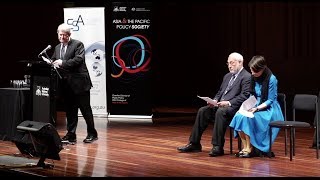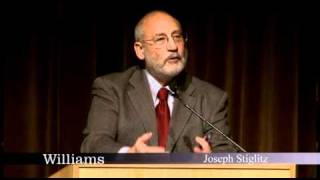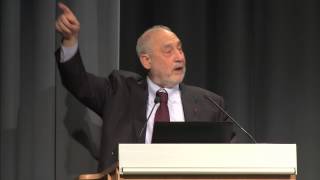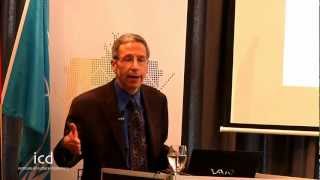Saturday, 13 December, 2025г.
















Где искать: по сайтам Запорожской области, статьи, видео ролики
пример: покупка автомобиля в Запорожье
Joseph Stiglitz: Crawford School Oration 2014
In this landmark lecture entitled 'Crisis averted? Lessons from the Global Financial Crisis' Nobel Laureate and distinguished Fellow of the Asia & the Pacific Policy Society, Professor Joseph Stiglitz, examines the origins of the GFC, analyses the economic policy responses and discusses whether the crisis really has been averted. He also looks at what's right, and wrong, with contemporary policy stances. The Global Financial Crisis (GFC) radically changed the view and role of economics and gave the world a worrying new perspective on the significance of economic shocks. But was the global policy response right? Will it happen again? Professor Stiglitz is widely recognised as one of the world's leading economists. He is a University Professor at Columbia University, New York, having previously taught at Oxford, Yale, MIT, Stanford, and Princeton. In 2001, he was awarded the Nobel Prize in economics for his analyses of markets with asymmetric information, and he was a lead author of the 1995 report of the Intergovernmental Panel on Climate Change, which shared the 2007 Nobel Peace Prize. In 2011, Time named Professor Stiglitz one of the 100 most influential people in the world. He is now serving as President of the International Economic Association. He was a member of the Council of Economic Advisers (CEA) during the Clinton administration, and served as CEA chairman from 1995-97. He then became Chief Economist and Senior Vice-President of the World Bank. In 2008 he was asked by the French President, Nicolas Sarkozy, to chair the Commission on the Measurement of Economic Performance and Social Progress. He now chairs a high level expert group at the OECD attempting to further advance these ideas. In 2009 he was appointed by the President of the United Nations General Assembly as chair of the Commission of Experts on Reform of the International Financial and Monetary System. Professor Stiglitz's visit is sponsored by Crawford School of Public Policy at The Australian National University.
Теги:
Crawford ANU Australian National University (College/University) Columbia University (College/University) GFC The Global Financial Crisis Economics (Field Of Study) Professor Joseph Stiglitz Stiglitz Nobel P Nobel prize in economics University Of Oxford (College/University) Stanford University (College/University) Crawford School Of Public Policy (Organization) education research Nobel Prize (Award)
Похожие видео
Мой аккаунт


 У вашего броузера проблема в совместимости с HTML5
У вашего броузера проблема в совместимости с HTML5


